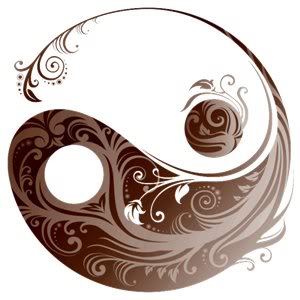 ZEN Dream Conversations. On Buddhism and Zen.. Muso Kokushi Practical Application
ZEN Dream Conversations. On Buddhism and Zen.. Muso Kokushi Practical ApplicationAccording
to Buddhist scripture, even if people are learned, as long as they do
not put their learning into practice, they are no different from the
ignorant. This is also true of mundane activities; to understand the
principles and talk about them may be quite easy, but actual
performance is not so easy. Many
learned people only profess and do not actually refine their minds.
This is why they do not reach the attainments of the sages whose books
they study.
When
Confucius was alive he taught his students the principles of
humaneness, justice, courtesy, intelligence, and truthfulness and had
them practice these principles. When Confucius testified that
so-and-so had learned humaneness, or so-in-son had learned justice, he
was referring to people whose hearts were humane or just, not to people
who had merely learned how to talk about humaneness and justice but
had no humaneness or justice in their hearts.
Later
students of Confucianism however, claimed to be masters of Confucian
teaching as soon as they had learned definitions of humaneness and
justice, without having cultivated humaneness or justice in their
hearts.
The
same was also true of Buddhism. When Buddha was in the world, not all
of his followers were geniuses who attained liberation promptly and
became free, but even those of mediocre and lesser faculties who heeded
Buddha’s instructions and put them into practice attained benefits
according to their abilities. Even after Buddha’s death, all those who
practiced the teaching appropriately gained some benefit. This was
because they followed Buddhism only for liberation and for the
salvation of all living beings, not for social status and material
profit.
In
later times, many people, both laity and clergy, followed and studied
Buddhism for the sake of reputation and material profit. Therefore they
did not advance in actual self-cultivation and refinement. They
thought it was enough to learn the doctrines of the various schools. As
a result, the more learned they were, the more conceited they became. In
consequence of all this, whereas ordinary people have just the usual
personal ego, students of Buddhism added to that a religious ego.
Therefore even scholars of outstanding erudition might be no different
from the most wretched miscreants in terms of their actual way of
living and manner of being.
Zen
teaching says that it is better to practice a little than to talk a
lot. Zen masters have therefore recommended that learned understanding
be subordinated to study through personal experience. The
time nevertheless came when even Zen students were given to literary
pursuits and became so proud of their erudition that they were not
ashamed of having no real experience of enlightenment.
No Set Track
Zen
teaching has no set track or fixed pattern. Sometimes it explains
mundane principles, sometimes it expounds transmundane doctrines. In
any case, the purpose is to dissolve people’s sticking points and
relieve them of their bondage. Therefore there is no dogma or
doctrinal orthodoxy; the only issue is what will effectively liberate
and enlighten people.
According
to an ancient Zen saying, “If you understand, you can use it on the
road; if you do not understand, it becomes a mundane convention.” Even
if people are given mystic teachings for transcendence, if they do not
understand them, the teachings become conventional doctrines. On
the other hand, if hearing explanation of worldly principles frees
people from clinging and bondage, with the result that they unite
directly with the fundamental, then these worldly principles are in that
sense profound teachings. Muso Kokushi (1275-1351)
https://dailyzen.com/zen/zen_reading1102.asp
Excerpted from Dream Conversations On Buddhism and Zen translated by Thomas Cleary 1994
When an
ordinary man attains knowledge he is [(becomes)] a sage.
When a sage
attains understanding, he is [(becomes)] an ordinary man.
- Zen Saying
.


